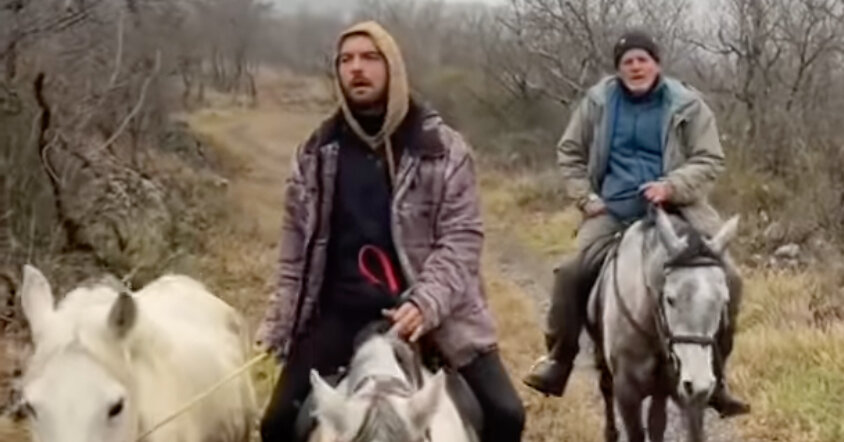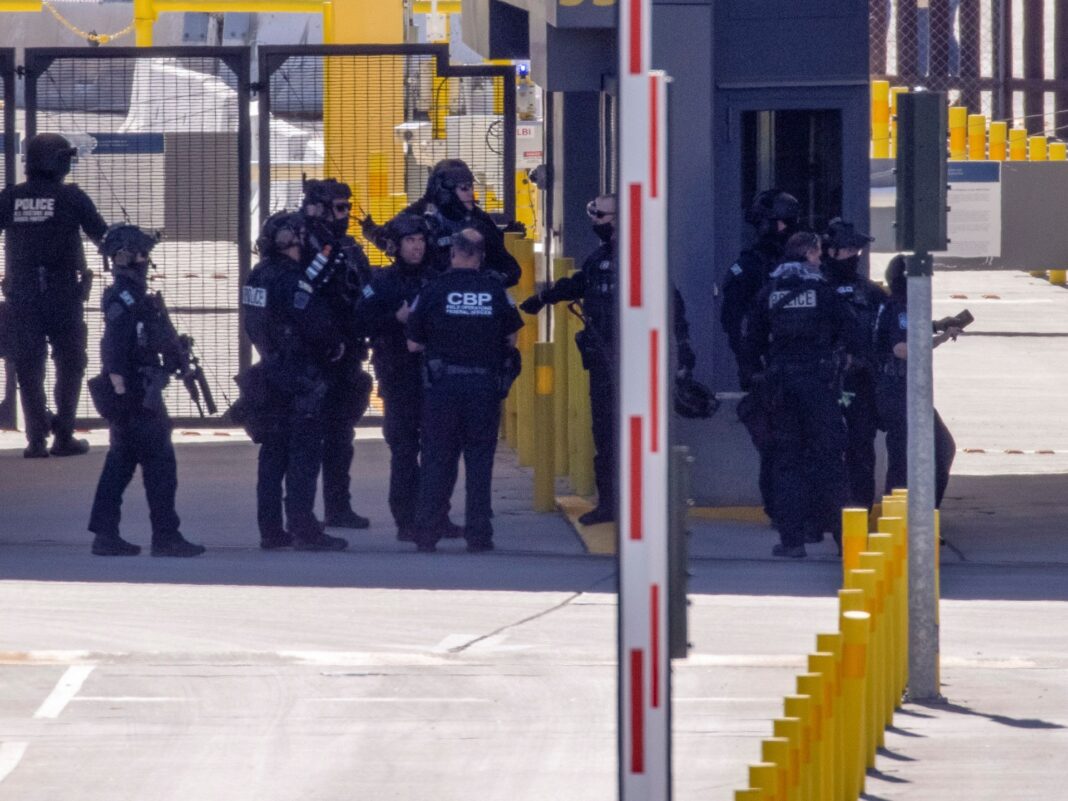More than 1.5 million people traveled to Saudi Arabia this year for the hajj. Only three of them rode on horseback all the way from Spain, recreating the pilgrimage of Andalusian Muslims centuries ago and sharing their travels in the most modern way with big followings on social media.
In Bosnia, they lost days looking for borrowed horses that broke free after a scare and ended up wandering into a minefield. In France, the horses panicked in a tunnel filled with mud, and one nearly drowned before one pilgrim, on foot and chest-deep in the muck, helped pull the animal out.
“We were really scared. We didn’t know what to do. There were too many horses jumping,” said Abdelkader Harkassi Aidi, one of the riders. “We thought we would lose that horse.”
Hajj on Horseback, as they called their project, took four years of preparation and about seven months of travel over nearly 4,000 miles across about a dozen countries with sometimes treacherous terrain. The journey was, in a sense, a test of their faith in God, humanity and the internet.
The buzzy project, reviving an ancient tradition on social media, drew more than 345,000 followers on Instagram and more than 250,000 on TikTok. Some of the pilgrims’ posts from the road — showing the group camping, making meals, hosing down horses, talking to strangers and running into administrative and physical obstacles that added many miles to the trip — have been viewed more than 550,000 times.
It was not always clear that the group would make it, but their fans helped the travelers with supplies and assistance on the ground, and with offers of aid on the internet, like donations and a revamp of their logo.
The pilgrims, Mr. Harkassi, Abdallah Rafael Hernandez Mancha and Tarek Rodriguez, are Spanish Muslims. The seed of their project began germinating some 35 years ago when Mr. Hernandez converted to Islam and pledged to someday make the hajj, the annual pilgrimage to Mecca that Islam requires all able Muslims do at least once — and to do it on horseback.
About six years ago, Mr. Harkassi and Mr. Hernandez met on a project translating an ancient text on falconry from Arabic to Spanish. Mr. Hernandez revealed his longstanding dream and Mr. Harkassi says he immediately agreed to help him.
Over several years, they made extended practice rides, building endurance and fostering the camaraderie that got them through the longer journey, Mr. Harkassi said. Mr. Rodriguez joined the group later.
The trio set out from southern Spain last October with about $1,700 each. They ran out of personal funds early in the journey, they said, but before they left, they began soliciting donations, including on a Muslim crowdfunding site where they have raised about $56,000 from more than 1,100 people for supplies, horse feeding, care and logistics.
Many of those appear to be small contributions from Australia, Canada, England, Europe, Malaysia, Singapore, the United States and more, collected as they traveled and documented their highs and lows on the road.
The group also relied on help from equestrian centers, mosques and random passers-by. An artist in the United States drew them a logo describing their endeavor in Arabic calligraphy shaped like a horse’s head. A Saudi influencer popped up in Italy with a cozy camper van and boosted their popularity. A man in Turkey stopped his car to give them snacks.
In Syria, a country devastated by a civil war that had just ended after almost 14 years, the riders marveled at the hospitality of the people who showed them around, and at the efforts already underway to rebuild. In Saudi Arabia, Mr. Harkassi said, the authorities treated them like “kings.”
The pilgrims recognized that their experience stands in stark contrast to that of many Muslims who do not share their privilege, passports or online appeal. Many cannot afford the journey, even at a fraction of the cost of the Spaniards’ trip, or obtain the needed permits, and those who can often spend years scraping together the money.
In a post upon their arrival, the group said they were grateful for the “extraordinary” journey that brought them to Mecca. “No words can fully describe the emotion of standing here, but we pray from the depths of our hearts, that every Muslim be granted the opportunity.”
Last year, more than 1,300 people died on the hajj, the vast majority of whom the Saudi government said did not have permits. Many had walked for miles in scorching heat after paying thousands of dollars to illicit or fraudulent tour operators.
For the Spanish riders, the lowest point came in northern Italy, according to Mr. Harkassi, when they had very little money, they were cold, and the roads were busy and difficult.
From there they traveled through Slovenia, Croatia, Bosnia and Herzegovina, Serbia, Bulgaria, Turkey, Syria and Jordan to Saudi Arabia. They grew tense approaching each border, never sure what the rules would be for their unusual form of transport — and indeed, they had to borrow local horses for the journey through Bosnia and Herzegovina and Serbia, reconnecting with their own rides again in Turkey.
Still, Mr. Harkassi said, his favorite parts often came right after clearing those hurdles, once they entered a country and were, time after time, greeted enthusiastically.
“We witnessed generosity across the board,” he said, from people with both few and many resources, who were moved by the journey on horseback or those who supported its spiritual purpose or both.
In Mecca last week, they encountered a fan from Bosnia and, in an exchange caught on camera, told him of their newfound affection for his country. The man recognized them from TikTok and declared that he and the “people of Bosnia” had followed their adventure.
“We loved you,” he said. “And we still love you!”
Now, the Spanish pilgrims hope to make a documentary about their journey.


